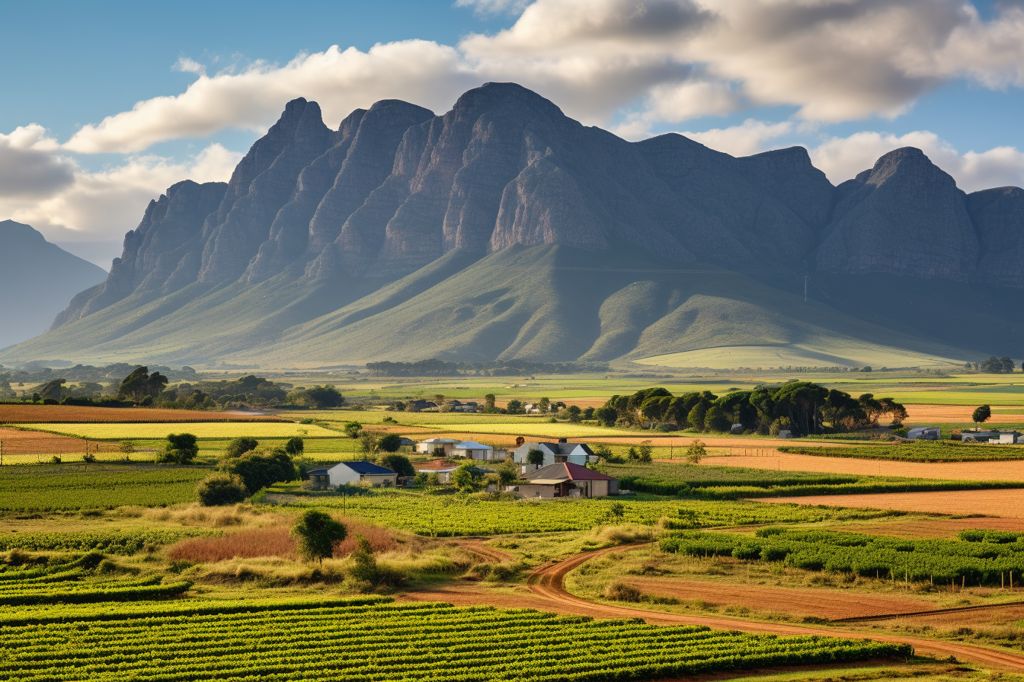The Western Cape province in South Africa has emerged as a beacon of hope in the country’s agricultural employment sector. Despite numerous challenges, the province has managed to create jobs and support the national agricultural growth, showcasing the resilience of its people and industries.
Lowest Unemployment Rates
According to the Quarterly Labour Force Survey (QLFS) released by StatsSA for the second quarter of 2023, South Africa’s official unemployment rate stands at 32.6%. However, the Western Cape boasts the lowest unemployment rate among the provinces, with a figure of 20.9%.
Significance of Western Cape in Agricultural Sector
The Western Cape has played a crucial role in the country’s agricultural sector, accounting for a 22% share of farm employment. Kwa-Zulu Natal and Limpopo have also contributed significantly, with 17% each. Nationally, the primary agricultural sector (including forestry and fisheries) saw an annual growth rate of 2% in employment (21,000 jobs) in the second quarter on a year-on-year basis and a 1% growth rate (7,000 jobs) quarter-on-quarter.
Reasons for Growth in Agricultural Employment
The growth in agricultural employment within the Western Cape can be traced back to increased farm-level activities. The replanting of winter crops and high production in field crops, forestry, aquaculture, citrus fruit, and blueberries have all played a part in this development. Since the second quarter of 2021, the province’s agricultural employment has rebounded, increasing by 9% compared to the same period last year. Additionally, agri-processing employment numbers in the Western Cape rose by 9.5% in the second quarter of 2023 on a year-on-year basis, adding 10,011 jobs.
Challenges in the Agricultural Sector
Dr. Ivan Meyer, Western Cape Provincial Minister of Agriculture, acknowledges that the agricultural sector currently faces numerous challenges. These include poor port and logistics performance, load-shedding affecting irrigation schedules, avian influenza outbreak, weather-driven volatility, and animal health and biosecurity issues. Despite these obstacles, the agricultural sector remains a vital employer at the farm level and through agri-processing activities along the value chain.
Concerns over the African Growth and Opportunity Act
South Africa is a net exporter of major crops, and the country has been investing in increasing the production and productivity of these crops, which in turn, create more jobs. However, Dr. Meyer expressed concern about the potential exclusion of South Africa from the eligibility list of the African Growth and Opportunity Act (AGOA) in 2025. The Act has facilitated agricultural exports, including citrus fruits, nuts, wine, grapes, and ice cream – products dominantly produced in the Western Cape. The potential loss of eligibility could result in a 9% reduction in the citrus export market share, impacting the primary jobs created through the production of significant export products to the USA under AGOA preferences.
Resilience and Dedication
Though the Western Cape’s agricultural sector faces challenges and uncertainty, the province has demonstrated a remarkable ability to foster employment and contribute to the nation’s agricultural growth. Its resilience, adaptability, and the dedication of its people ensure that it continues to play a critical role in South Africa’s agricultural landscape.








